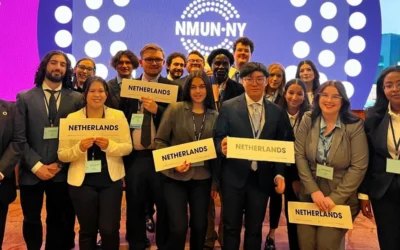Imagine you’re a musician who was born and raised in Canada. Imagine you put out an album chock full of Canadian collaborators. Imagine the album’s first single gets to no. 1 on the Billboard Hot 100.
Certainly, the Canadian Radio and Telecommunications Commission (CRTC), regulator of Canadian media content, would be proud of you. After all, you got Canadian content to be successful on an international scale, right?
Well, hold up.
Did you, in your grand artistic endeavours, invite a couple of nice, talented Parisian men to collaborate with you on a couple of songs, including that no. 1 single?
You did? Oh, dear. What did those men do? They wrote the lyrics and composed the song with you? Well, is the single at least a recording of a live performance? “No, of course not; who does that for a highly-anticipated studio album”? Gasp. Shock. Awe.
Your content is no longer Canadian.
At least, it isn’t to the CRTC.
Such is the situation faced by Toronto-born musician The Weeknd, whose latest album has a few too many non-Canadian collaborators for the CRTC’s taste.
For your musical content to be considered “Canadian content” (CanCon) by the CRTC, it must fit at least two of these criteria found on the CRTC’s website:
“M (music): the music is composed entirely by a Canadian
A (artist): the music is, or the lyrics are, performed principally by a Canadian
P (performance): the musical selection consists of a live performance that is recorded wholly in Canada, or performed wholly in Canada and broadcast live in Canada
L (lyrics): the lyrics are written entirely by a Canadian.”
This is the MAPL system, created with the intent of promoting Canadian music. On the surface, it may seem like a good idea, but it’s amazing what can and what can’t meet these standards.
Take a look at these “Canadian” albums that were released in the past year:
Starboy by The Weeknd, released Nov. 25, 2016
M: No. Having French electronic duo Daft Punk credited as composers of the first single and title track “Starboy” immediately exempts the album from meeting the “Music” criterion. Having other non-Canadians, like American singer-songwriter Lana Del Rey and American rapper Kendrick Lamar, credited as composers on other tracks really just sealed the deal.
A: Yes. The Weeknd is Canadian. Daft Punk, Del Rey and Lamar all have the nerve to contribute vocals, but overall, The Weeknd is the main singer. And he’s Canadian. That’s good.
P: Not applicable. Starboy is a studio album.
L: No. Many of the non-Canadians who composed the record likely contributed lyrics, too.
Is it CanCon? No. I mean, honestly, why did The Weeknd even bother? It’s like he wasn’t concerned about making CanCon. Can you believe that? He might as well have let Daft Punk write and compose everything and let them release the resulting album under their name. Is that really what Canadians want? A new Daft Punk album?
Views by Drake, released April 29, 2016
M: No. Only the first track, “Keep The Family Close,” is composed by Canadians exclusively. All of the tracks have Canadian com- posers, but tracks 2–20 see those true patriots joined by non-Canadians.
A: Yes. Drake is as Canadian as eating maple-syrup-drenched poutine while sitting atop the CN Tower. Like with Starboy, non-Canadian interlopers (like Wizkid, Future, and Rihanna, among others) sing their way onto the album, but Drake’s the main show here.
P: Not applicable. Like Starboy, Views is a studio album.
L: No. The text annotation site Genius suggests a handful of tracks on Views were penned solely by Canadians, but that many of the people given “writing” credits are non-Canadians.
Is it CanCon? No. You can’t just get a bunch of Canadians to work with you, pay homage to a Canadian city and expect it to be considered CanCon, Drake. Who do you think you are, Bob and/or Doug McKenzie?
MEGA by Blank Banshee, released Oct. 10, 2016
M: Probably not. WhoSampled, a site that compiles information on song sampling, says at least four tracks on the album sample compositions by American and Japanese composers. MEGA doesn’t credit any of its samples, but WhoSampled’s assertions fall in line with Blank Banshee’s history of sampling non-Canadian soundtracks and electronica. The four tracks listed by WhoSampled probably aren’t the only sample-based songs on MEGA, either.
A: Probably. Blank Banshee is Canadian, and if evidence from the information sheet for Blank Banshee 0 is any indication, then collaborator Cormorant is likely an old bandmate of Blank’s from their time in St. John’s, N.B., alt-rock band Shinjuku Mad.
P: Not applicable. is is a vaporwave album.
L: Yes, probably. All of the album’s lyrics are credited to Cormorant, who is, again, likely Canadian.
Is it CanCon? Probably, yeah. See, guys? It’s not hard to make CanCon. All you need to do is steal* the compositions of foreign nationals and rework them by putting effects and putting your own lyrics on them.
*(Okay, admittedly, I don’t know that Blank outright stole any samples for MEGA. As it is, the album is, along with the rest of Blank’s discography, available for streaming on Spotify. For me, that’s kind of the bare minimum pass for the legality of a sample. It’s far from being a credible legal test, but it’s something, especially given that Blank has had trouble with getting and keeping Blank Banshee 1 on the site in the past.
Of course, what would really help is if Blank were to list his samples. You might be saying, “How do you know that he’s sampling anything?” How do I know? “Teen Pregnancy,” from Blank Banshee 0, samples dialogue from Degrassi Junior High. Don’t believe me? Go watch the last few minutes of “It’s Late!” and get back to me. WhoSampled told me about that, and now, I’m telling you.)
Nobody but Me by Michael Bublé, released Oct. 21, 2016
M: No. Some of the songs on this album are covers – covers of songs originally by non-Canadians.
A: Yes. As we all know, Bublé is Canadian.
P: Not applicable. Nobody but Me is a studio album.
L: No. If you get your lyrics from overseas, you forfeit the “Lyrics” component of the MAPL system.
Is it CanCon? No. You had one job, Bublé. One job!
Now, all of that isn’t to say that individual tracks off of the aforementioned albums couldn’t qualify as standalone CanCon.
If you want to spin “Keep The Family Close” during your shift at a Canadian radio station, congrats – you’re helping the station reach its CanCon quotas.
Taken as wholes, though, so many otherwise Canadian albums do not meet the CRTC’s music requirements. They can be broadcast in Canada, yes, but they don’t count as CanCon.
It’s ironic in a way: Canada prides itself on its perceived multiculturalism, but if you allow a foreign national to contribute so much as one word and one note to your song, that content’s no longer Canadian.
CanCon quotas have been hugely beneficial to Canadian musicians, so these quotas are important. However, it’s also important to remember that diversity never hurt anyone, and it certainly never made anything “less Canadian.”
Besides, is it right to strip a song that would have otherwise been made exclusively by Canadians of its CanCon status just because an American got caught in the mix?
Is it right to let what could be valuable Canadiana be denied the CanCon status just because a Nigerian helped to write and compose it?
That’s what the CRTC thinks, I guess.
Illustration by Alley MacLean.




0 Comments